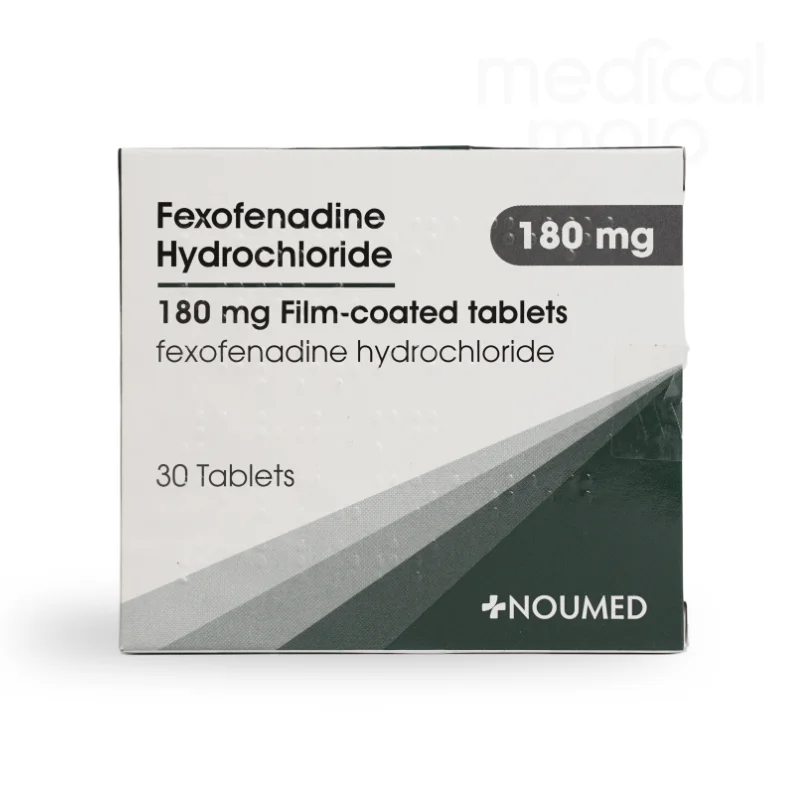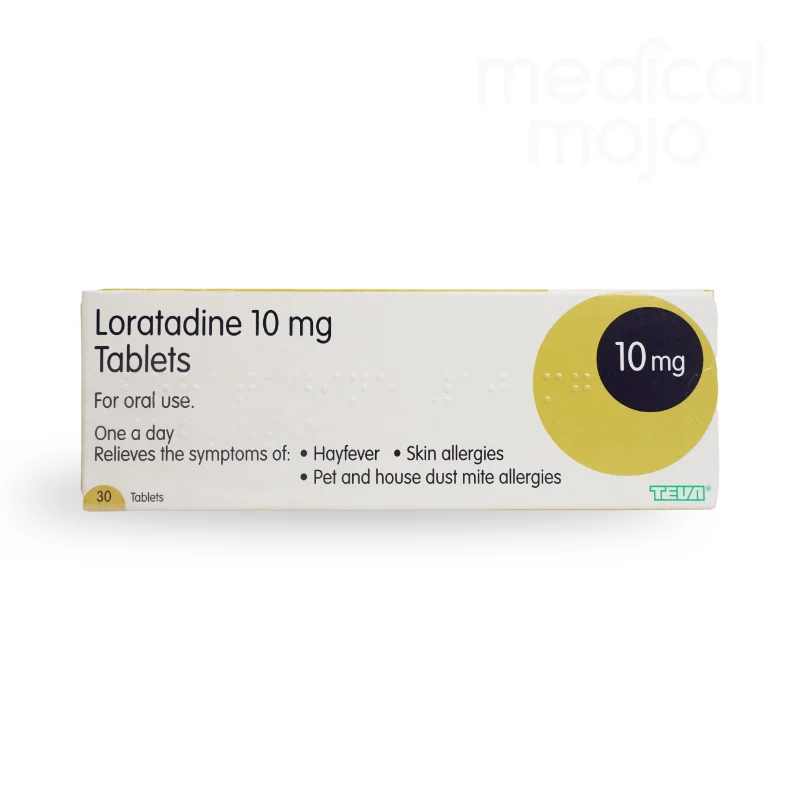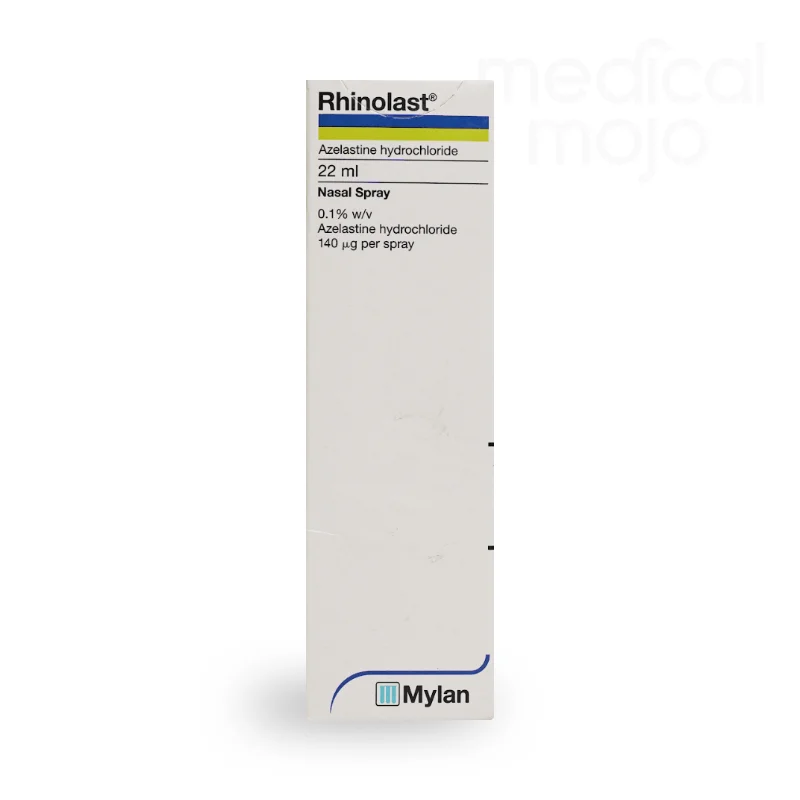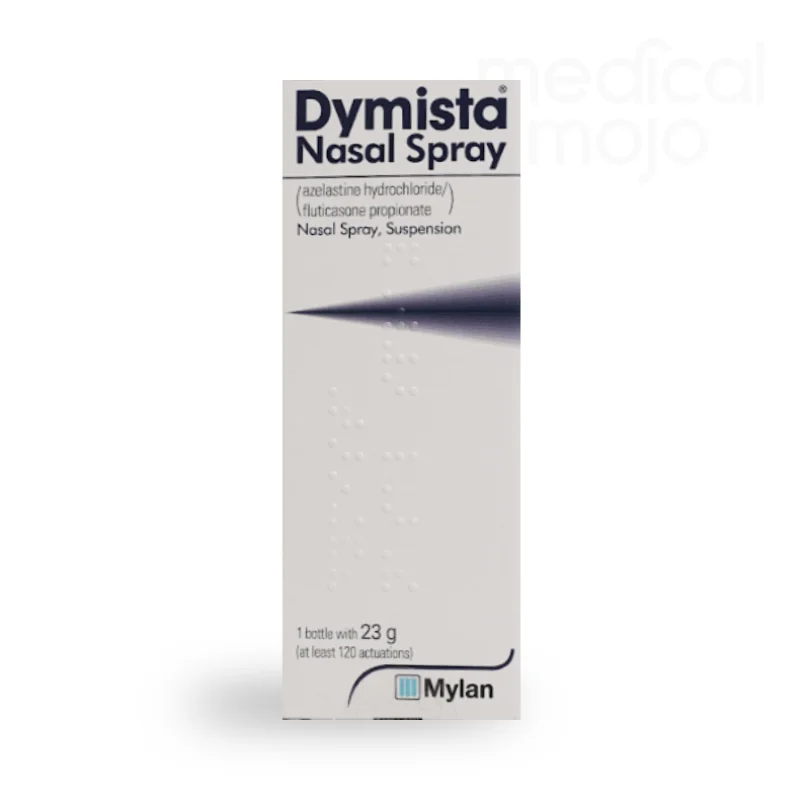What is Fexofenadine?
Fexofenadine is an antihistamine medication used to relieve allergy symptoms such as hay fever (allergic rhinitis) and hives (urticaria). It works by blocking histamine, a substance in the body that causes allergic reactions like itching, sneezing, a runny nose, and watery eyes. As a second-generation antihistamine, it is less likely to cause drowsiness compared to older antihistamines like diphenhydramine. Fexofenadine is available in tablets, capsules, and oral suspension forms.
What are Fexofenadine tablets used for?
Fexofenadine tablets are primarily used to relieve symptoms associated with allergies, including:
- Hay fever (allergic rhinitis): Symptoms such as sneezing, a runny or itchy nose, nasal congestion, and itchy or watery eyes caused by allergens like pollen, dust mites, or pet dander.
- Hives (urticaria): Itchy, raised welts on the skin that may be triggered by factors such as allergies to foods, medications, or environmental conditions.
Fexofenadine works by blocking histamine, helping to reduce symptoms like itching, sneezing, a runny nose, and watery eyes.
What are the symptoms of hay fever?
Hay fever symptoms include:
- Coughing or sneezing
- Itchy, watery, or red eyes
- Blocked or runny nose, often with a loss of smell
- Discomfort in the mouth, throat, ears, or nose
- Headache or earache
- Fatigue
For asthma sufferers, hay fever symptoms may also include chest tightness, increased coughing and wheezing, and difficulty breathing.
What are some alternatives to Fexofenadine?
Common alternatives to Fexofenadine include:
- Second-generation antihistamines: Cetirizine (Zyrtec), Loratadine (Clarityn), Levocetirizine (Xyzal)
- Nasal corticosteroids: Fluticasone propionate (Flonase), Triamcinolone acetonide (Nasacort), Mometasone furoate (Nasonex)
- Decongestants: Pseudoephedrine (Sudafed), Oxymetazoline (Otrivine)
- Eye drops: Olopatadine hydrochloride (Opatanol), Sodium cromoglicate (Opticrom)
Does Fexofenadine affect blood pressure?
There is no known link between Fexofenadine hydrochloride and high blood pressure.
Can I drink alcohol while taking Fexofenadine?
It's recommended to avoid alcohol while taking Fexofenadine, as it may increase the risk of drowsiness or other side effects. If you choose to drink, do so in moderation and monitor your reaction.
Is Fexofenadine safe for people with asthma?
Fexofenadine is generally safe for people with asthma, but it can cause side effects in some cases. If you experience any adverse effects, consult your doctor or pharmacist immediately.
Can I take Fexofenadine if I'm pregnant or breastfeeding?
If you are pregnant or breastfeeding, you should consult your doctor before taking Fexofenadine. It's best to use alternative treatments like eye drops or nasal sprays unless otherwise advised by your doctor.
How should I take Fexofenadine tablets?
Fexofenadine tablets should be taken once daily, ideally at the same time each day. Swallow the tablet whole with water before a meal. Fexofenadine works best when taken consistently every day. If you miss a dose, do not double the next one; simply continue with your regular schedule. You can use Fexofenadine along with a nasal spray and eye drops for hay fever, but avoid taking it with other antihistamines.
What are the active ingredients in Fexofenadine tablets?
The active ingredient in Fexofenadine tablets is:
- Fexofenadine hydrochloride (120 mg or 180 mg)
What are the common side effects of Fexofenadine?
While Fexofenadine is generally well-tolerated, some common side effects include:
- Headache: One of the most frequently reported side effects, varying in intensity and duration.
- Drowsiness: Although less likely than older antihistamines, Fexofenadine can still cause drowsiness, particularly at higher doses.
- Nausea: Usually mild and temporary.
If you experience any unusual symptoms, consult a healthcare professional.
What warnings should I consider before taking Fexofenadine?
- Allergic Reactions: Avoid Fexofenadine if you’ve had allergic reactions to it or any of its ingredients.
- Renal and Liver Impairment: Caution is advised for patients with kidney or liver issues; dosage adjustments may be necessary.
- Central Nervous System Effects: Some people may experience drowsiness or reduced mental alertness; be cautious when driving or operating machinery.
- Drug Interactions: Fexofenadine may interact with other medications, including certain antifungals and drugs that affect the enzyme CYP3A4. Inform your healthcare provider about all medications you're taking.
- Alcohol: Avoid alcohol as it may increase the risk of drowsiness.
Always read the packaging and information leaflet before taking Fexofenadine, and consult your doctor if you have any concerns.











